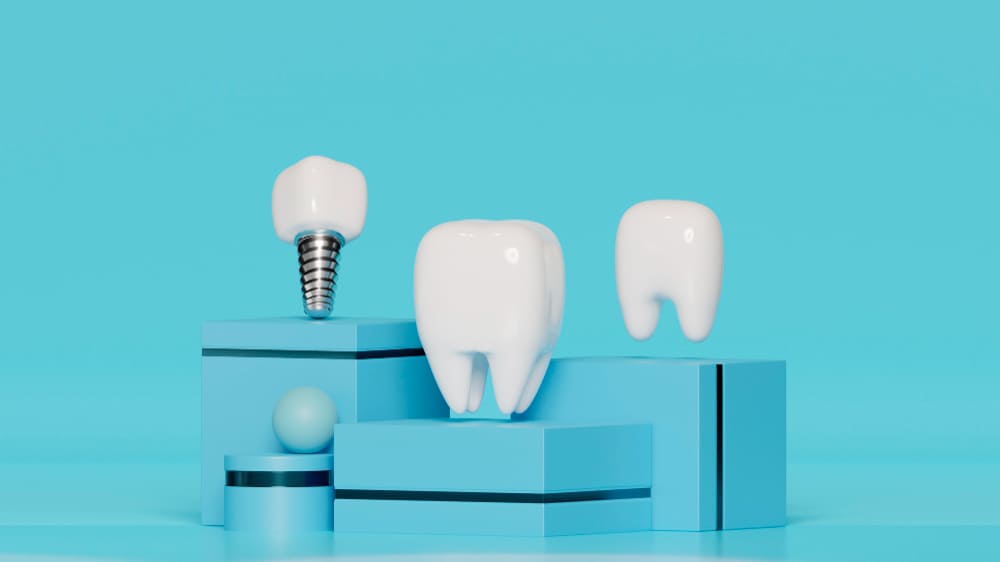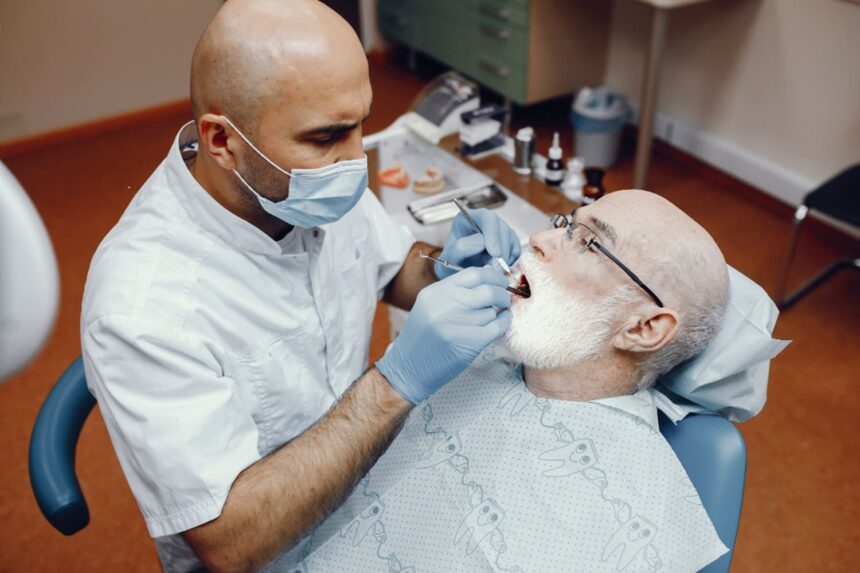A glowing smile is a global symbol of confidence and happiness. However, dental problems may frequently ruin our smiles, harming both our beauty and our oral health. Dental implants stand out as a new alternative for individuals looking for a developing response. We’ll dig into the world of dental implants in this complete guide, discussing their advantages, the surgery, the aftercare, and why they’re a great choice for Deira’s people who want to regain their smiles.
The Meaning of Dental Implants and How Do They Work?
Dental implants are artificial teeth that are used to replace one or more lost natural teeth. They are implanted in the jawbone and bond with it to form a stable basis for a prosthetic tooth, dental bridge, or denture.
The dental implant functions similarly to a natural tooth. It is stable and strong because it bonds with the bone. In contrast to dentures, which shift and move during chewing, a dental implant remains in place throughout its function. As a result, patients may eat, converse, and smile with confidence. Sustainable materials, such as titanium, are used to make dental implants. The human body tolerates such materials effectively.
What are the three main parts of dental implants?

1. The implant post: This tiny screw serves as a makeshift tooth root. It is inserted into the jawbone surgically. It offers a solid base upon which the repair may depend.
2. The abutment: This joins the prosthetic tooth to the implant post.
3. The dental prosthetic: This can be a denture, bridge, or crown. It serves as the implant’s visible portion and helps you regain your comfortable speaking and chewing abilities. They are made to resemble your teeth in terms of size, form, and color.
What is involved in a dental implant?

The placement of dental implants involves:
1. The first step in a dental implant treatment is an examination. To ascertain whether a patient is qualified for dental implants, the dentist will do a mouth examination and take X-rays.
2. In the second step, a tooth extraction will be performed if the decaying or damaged teeth are still present.
3. Then, in the third step, dental treatments will be recommended to get the patient ready for implant placement if they have gum disease or do not have enough bone to support the implant.
4. Lastly, the dentist will set a time for the surgery after it is decided that the patient is prepared for dental implants.
How long does the dental implant operation take?

Here are the steps performed during dental implant surgery:
1. To reveal the jawbone, the dentist will create a cut in the gum tissue.
2. After that, they will firmly connect a titanium post by inserting it into the bone.
3. The incision will be sealed and given time to heal when the implant is firmly in place.
4. It will be permitted for the implant to merge with the jawbone. Normally, the osseointegration process requires a minimum of three months.
People Also read – Discover the Secret to a Perfect Smile: By The Doctors Hub’s Dental Clinic in Deira
5. The dentist will install an abutment over the implant to link the artificial tooth to the implant post once the implant has completely bonded with the bone.
6. The artificial tooth, which may include dentures, a bridge, or a dental crown, will next be put over the foundation.
The implantation of an artificial tooth usually takes six to eight months and requires consultation, pain treatment, and appropriate maintenance, with some discomfort during the first few weeks.
Which Possible Side Effects Could Dental Implants Cause?

1. Reactions caused by allergies: Allergies to the materials employed for dental implants are possible. Itching, discomfort, redness, and swelling are among the warning signs and symptoms.
2. Bone loss: If the implant does not correctly integrate with the surrounding bone and tissue, bone loss may eventually occur. Implant shifting or loosening might be one of the symptoms.
3. Damage to nearby, healthy teeth: Neighboring, healthy teeth may sustain damage. This occurs when the implant is positioned too closely, applies too much pressure, or interferes with the alignment of the bite.
4. Infection: After dental surgery, infection is likely to occur. Infection may occur if the surgery site is not cleansed and the body is unable to fight off microorganisms. This may result in discomfort, a slow healing process, and implant failure.
What is the process for maintaining implanted teeth?

1. Brushing and flossing regularly, ideally twice daily.
2. Avoid tobacco and smoking.
3. Follow a well-balanced diet.
4. Get treatment for any existing teeth-grinding.
5. Avoid eating hard, crunchy, sticky, or chewy foods.
Conclusion
We went over all there is to understand about dental implants. You should now have a greater understanding of dental implants, the method involved in getting them, and what to expect following surgery.


Leave a Reply